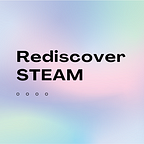Giulia Galli, Condensed-Matter Physicist
Born and raised in Italy, Dr. Giulia Galli is notoriously private about her early life, so much so that the only information widely known about her is from her university education and onwards. She earned her Ph.D. in physics from the International School For Advanced Studies, based in Trieste, Italy in 1987. She went on to earn postdoctoral fellowships from the University of Illinois at Urbana-Champaign and the IBM Research Division based in Zurich, Switzerland.
Dr Galli became a senior researcher at the Swiss Federal Institute of Technology in Lausanne, Switzerland in 1991 and quickly ascended to the role of a senior scientist. She then founded the Quantum Simulations group at the Lawrence Livermore National Laboratory (1998–2005) as its head and led this group. She then went on to become a Professor of Chemistry and Physics at the University of California, Davis from 2005 to 2013. During this time at UC Davis, she was promoted to the role of chair at the Division of Computational Physics of the APS in 2006. She also was chair of the Extreme Physics and Chemistry of Carbon Directorate of the Deep Carbon Observatory (DCO) from 2010 to 2013. In 2014, she joined the University of Chicago as its Liew Family professor of Electronic Structure and Simulations in the Institute for Molecular Engineering at the University of Chicago. Currently, she is also the director of Midwest Integrated Center for Computational Materials (MICCoM) formed by the US Department of Energy in 2015. The organisation was renewed by the US Energy Department in 2019, and it will be receiving $2.5 million per year until 2023.
Dr. Galli’s contributions to the scientific community are far-reaching and impossible to fully summarize. As the director of MICCoM, she has successfully helped develop and distribute informative computational tools that allow scientists from all over to carry out simulations and predictions of the properties of materials that could be used for energy conversion with a focus on renewable energies like solar and thermal energy. These tools have been essential in research on the chemical reactivity observed at the vital interface between water and electrodes in photoelectrochemical cells, a set of design principles to obtain desirable properties in semiconducting nanomaterials for emerging photoelectronic and thermoelectric technologies, and new strategies to control and manipulate the opto-mechanical response of materials for liquid crystalline displays (LCDs). Essentially, her studies aim to determine the optimum conditions for obtaining the maximum amount of renewable energy from sources like the sun while considering the properties of matter and light.
Her individual research and the group of researchers led by her at the University of Chicago have led to cutting-edge advancements in utilising nanostructured materials for solar energy conversion and similarly, using catalysts to broaden the scope of solar energy applications. In addition to her focus on energy, her research works on solving water scarcity problems, both in friendly and in severe environments. She has even worked on the development of the WEST code, which performs large-scale, many-body perturbation theory calculations providing electronic and optical spectroscopic characterization of complex materials and has been instrumental in the publication of over 180 research papers.
Her list of accomplishments is vast and varied. To list a few, she has received the following accolades: she is a Fellow of the American Physical Society, the American Association for the Advancement of Science and the American Academy of Arts of Sciences, as well as a member of the National Academy of Sciences. Galli is also a recipient of numerous awards, including the Lawrence Livermore National Laboratory Science and Technology Award, the US Department of Energy Award of Excellence, the Material Research Society Theory Award for “the development of advanced first-principles simulation methods and their application to understanding, prediction, and design of complex nanostructured materials” (Argonne National Laboratory, 2020), the APS David Adler Lectureship in Material Physics for the “invention of methods, especially for the enhancement of ab initio molecular dynamics, to understand, predict, and engineer the electronic and structural properties of materials,” the Feynman Nanotechnology Prize in Theory, the medal of the Schola Physica Romana and the Tomassoni-Chisesi award by the Sapienza University of Rome.
by Raina Talwar Bhatia
References
Argonne National Laboratory. (2020). Giulia Galli | Argonne national laboratory. Argonne National LaboratoryArgonne National Laboratory. https://www.anl.gov/profile/giulia-galli
Bosoy, A. (2019, September 27). Foresight institute, IIN, and Stoddart group host workshop on Nanotechnologies — Stoddart Mechanostereochemistry group. Stoddart Mechanostereochemistry Group — Chemistry & Molecular Nanotechnology in Tomorrow’s World. https://stoddart.northwestern.edu/2019/09/foresight-institute-iin-and-stoddart-group-host-workshop-on-nanotechnologies/
Caltech. (2020). Materials research lecture. Caltech Materials Science. https://ms.caltech.edu/events/46443
Galli, G. (2018). Optimizing materials for energy harvesting: In search for descriptors — IEEE conference publication. IEEE Xplore. https://ieeexplore.ieee.org/document/8626344
Google Scholar. (2020). Google scholar. https://scholar.google.com/scholar?oi=bibs&hl=en&cites=10135319195087919820&as_sdt=5
Harmon, J. E. (2019, June 26). U.S. Department of Energy renews Midwest integrated center for computational materials | Argonne national laboratory. Argonne National LaboratoryArgonne National Laboratory. https://www.anl.gov/article/us-department-of-energy-renews-midwest-integrated-center-for-computational-materials
Stanford University. (2018, October). Student hosted colloquia: Professor Giulia Galli, University of Chicago | Department of chemistry. Department of Chemistry |. https://chemistry.stanford.edu/events/student-hosted-colloquia-professor-giulia-galli-university-chicago
The Galli Group. (2020). The Galli group. https://galligroup.uchicago.edu/People/galli.php
UChicago and ANL. (2020). West-code. West-code. Retrieved September 13, 2020, from https://www.west-code.org/what-is-west.php
UChicago Pritzker School of Molecular Engineering. (2020). Giulia Galli. Pritzker School of Molecular Engineering | The University of Chicago. https://pme.uchicago.edu/faculty/giulia-galli
UChicago. (2020). Giulia Galli — Liew family professor. Chemistry Department | University of Chicago. https://chemistry.uchicago.edu/faculty/giulia-galli-liew-family-professor
Uchicago News. (2020, April 28). Two UChicago scholars elected to National Academy of Sciences. University of Chicago News. https://news.uchicago.edu/story/two-uchicago-scholars-elected-national-academy-sciences
